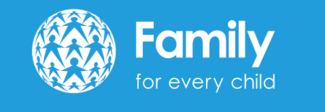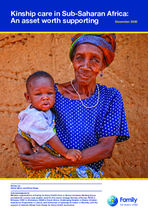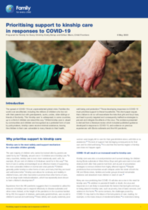Family for Every Child is a global network of local and national civil society organisations working together to improve the lives of vulnerable children around the world and supporting children to grow up in caring families, safe from exploitation and abuse.
Members include:
- KoRoot (South Korea)
- Zefie (Germany)
- Legal Services for Children (USA)
- 100% Mamans (Morocco)
- Children Assistance Program (CAP) (Liberia)
- Mulberry Bush (UK)
- Enfoque Niñez (Paraguay)
- Paicabi (Chile)
- Voice of Children (Nepal)
- Center for the Prevention and Treatment of Child Sexual Abuse (CPTCSA) (Philippines)
- CONACMI (Guatemala)
- Community Based Rehabilitation Jamaica (Jamaica)
- First Step Cambodia (FSC) (Cambodia)
- Hayat Sende Derneği (Turkey)
- Naba’a (Lebanon)
- Undugu Society of Kenya (USK) (Kenya)
- Children in Distress Network (CINDI) (South Africa)
- Jordan River Foundation (Jordan)
- Taller de Vida (Colombia)
- ChildLink (Guyana)
- Forum on Sustainable Child Empowerment (FSCE) (Ethiopia)
- Challenging Heights (Ghana)
- Uyisenga Ni Imanzi (Rwanda)
- Projeto Legal (Brazil)
- Partnership for Every Child (P4EC) Russia (Russia)
- Hope Village Society (Egypt)
- Muhammadiyah (Indonesia)
- Butterflies (India)
- Associação Brasileira Terra dos Homens (ABTH) (Brazil)
- JUCONI (Mexico)
- Semya Kazhdomu Rebenku (Kyrgyzstan)
- Farm Orphan Support Trust (FOST) (Zimbabwe)
Where they operate
Organization Type
Main Areas of Work
What They Do
Family for Every Child supports hundreds of thousands of children and families around the world by taking locally-led action in our communities. Underpinned by our experience of working on the front line, we also develop research, exchange practice, help in crises, and campaign for rights around the world.
Organization Resources
In this How We Care series webinar, Family for Every Child presented the programming of three CSOs on how they are supporting kin carers and the vulnerable children in their care, in their respective regions.
Family for Every Child has launched a new social network platform for child rights practitioners, called Changemakers for Children (changemakersforchildren.community). Child rights practitioners are invited to sign-up to the platform and join a global movement of local leaders working in children’s care and protection.
This paper argues that kinship care – the care of children by relatives or friends of the family – represents the greatest resource available for meeting the needs of girls and boys who are orphaned or otherwise live apart from their parents.
These Practitioner Guidance Papers share the approaches of five Family for Every Child members in adapting existing helplines or setting up new ones during the COVID-19 pandemic
This webinar heard from three of Family for Every Child's member organisations about their programmes to both integrate and reintegrate children on the move.
In this How We Care series webinar, Family for Every Child members CPTCSA (Philippines), Paicabi (Chile) and Butterflies (India) come together to discuss the work they are doing to address child sexual abuse in their contexts.
In this first event of Family for Every Child's How We Care series, Family Members CINDI (South Africa), Conacmi (Guatemala) and Uyisenga Ni Imanzi (Rwanda) shared their approaches and experiences of providing psychosocial support to children and families during the COVID-19 crisis.
In this online event, Family for Every Child members FSCE (Ethiopia), The Mulberry Bush (UK), Praajak (India) and CSID (Bangladesh) discussed children's care in the context of COVID-19.
This short paper from Family for Every Child argues that a failure to prioritize support for kinship care during the COVID-19 pandemic will exacerbate the risks that girls and boys face, and lead to poorly targeted and consequently ineffective strategies to prevent and mitigate the effects of the virus. The evidence presented is derived from a literature review which included published guidance developed in response to COVID-19, and evidence on previous experiences with Ebola outbreaks and the HIV pandemic.
How We Care is an initiative of Family for Every Child designed for those working with children and families across the world, to help them to learn from other practitioners. These pages showcase a variety of their practice, in order to generate learning and exchange across the Alliance and beyond.



